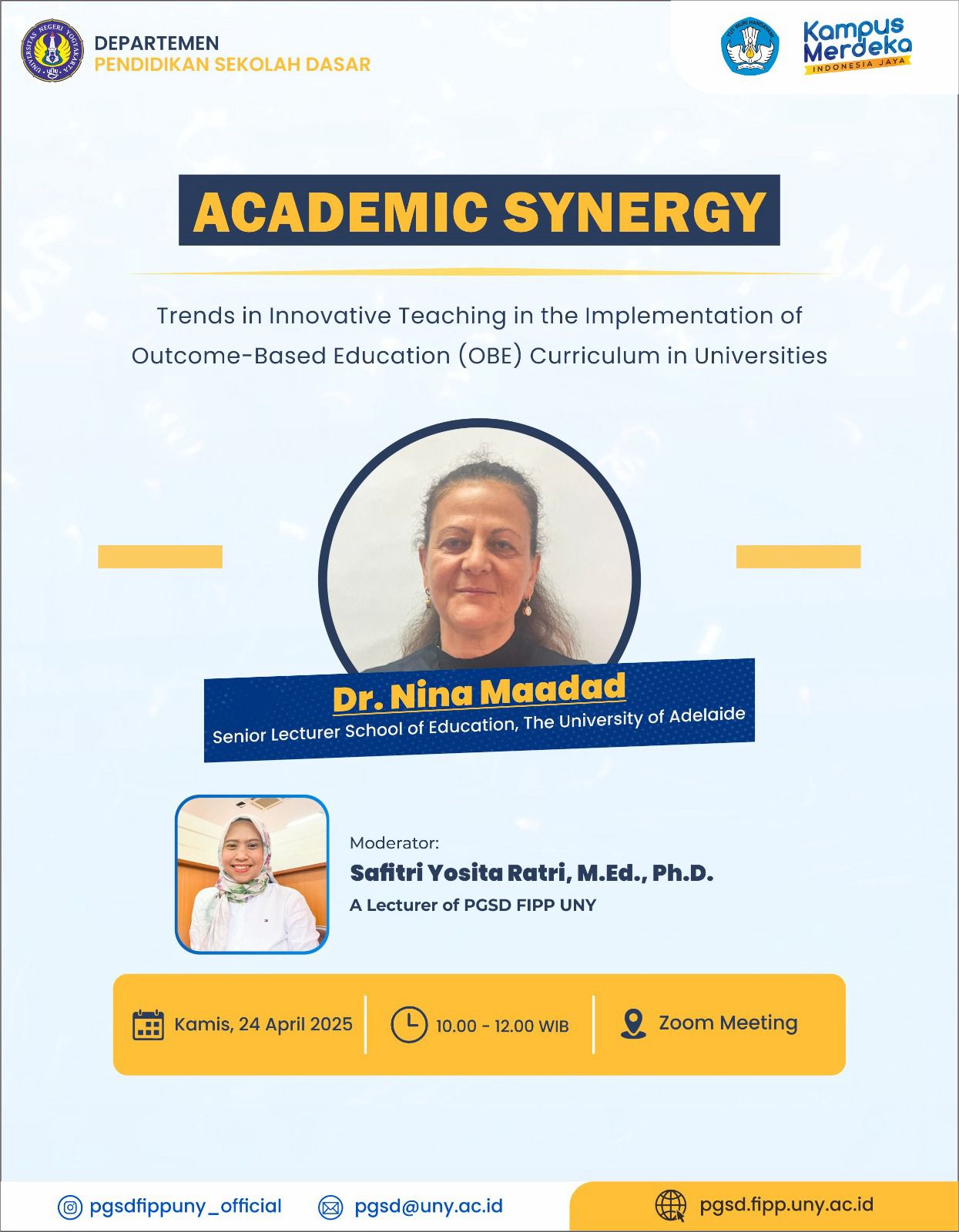 Bahasa Indonesia
Bahasa Indonesia English
English
You are here
ACADEMIC SYNERGY
Primary tabs

TRENDS IN INNOVATIVE TEACHING IN THE IMPLEMENTATION OF
OUTCOME-BASED EDUCATION (OBE) CURRICULUM IN UNIVERSITIES
OBE is a curriculum approach that emphasizes the achievement of specific learning outcomes that are measured by students. The main focus is on: 1) Graduate competencies (graduate attributes), 2) Alignment of learning objectives with industry and community needs, 3) Continuous evaluation of learning outcomes.
Innovative trends in Outcome-Based Education (OBE) teaching in higher education include a variety of approaches that emphasize learning outcomes and relevance to the real world. One of them is Project-Based Learning, where students work on real or simulated projects related to the world of work, while integrating cross-disciplinary knowledge and practical skills. In addition, the use of digital technology and e-learning is becoming increasingly important, with the use of Learning Management System (LMS) platforms such as Moodle or Google Classroom, the integration of interactive media, learning videos, and digital simulations, and the use of learning data (learning analytics) to personalize instruction. 1) Problem-Based Learning, is also becoming a trend, which encourages students to analyze and solve real problems collaboratively, thereby improving critical thinking and problem-solving skills. 2) The flip classroom model is used by delivering learning materials online before class takes place, so that face-to-face time is focused on discussion, application of concepts, and intensive guidance. In terms of evaluation, 3) authentic and competency-based assessments are preferred, through methods such as portfolios, presentations, case studies, and final projects to measure the achievement of Graduate Learning Outcomes (CPL) as a whole.
The role of lecturers in the implementation of OBE has also undergone a transformation; lecturers now act as learning facilitators who design learning experiences relevant to CPL and actively provide formative feedback to encourage improved student learning outcomes. Collaboration with external stakeholders, such as industry and alumni, is also an important part of developing a curriculum that is responsive to job market needs and global trends. However, the implementation of OBE faces various challenges, including the readiness of lecturers to adopt innovative methods, the need for pedagogical and technological training, and the importance of an internal quality assurance system to monitor and evaluate learning outcomes continuously.
#SinergiAkademik #24April2025 #DepartemenPSD #FIPP #UNY
Kontak Kami
Copyright © 2025,
